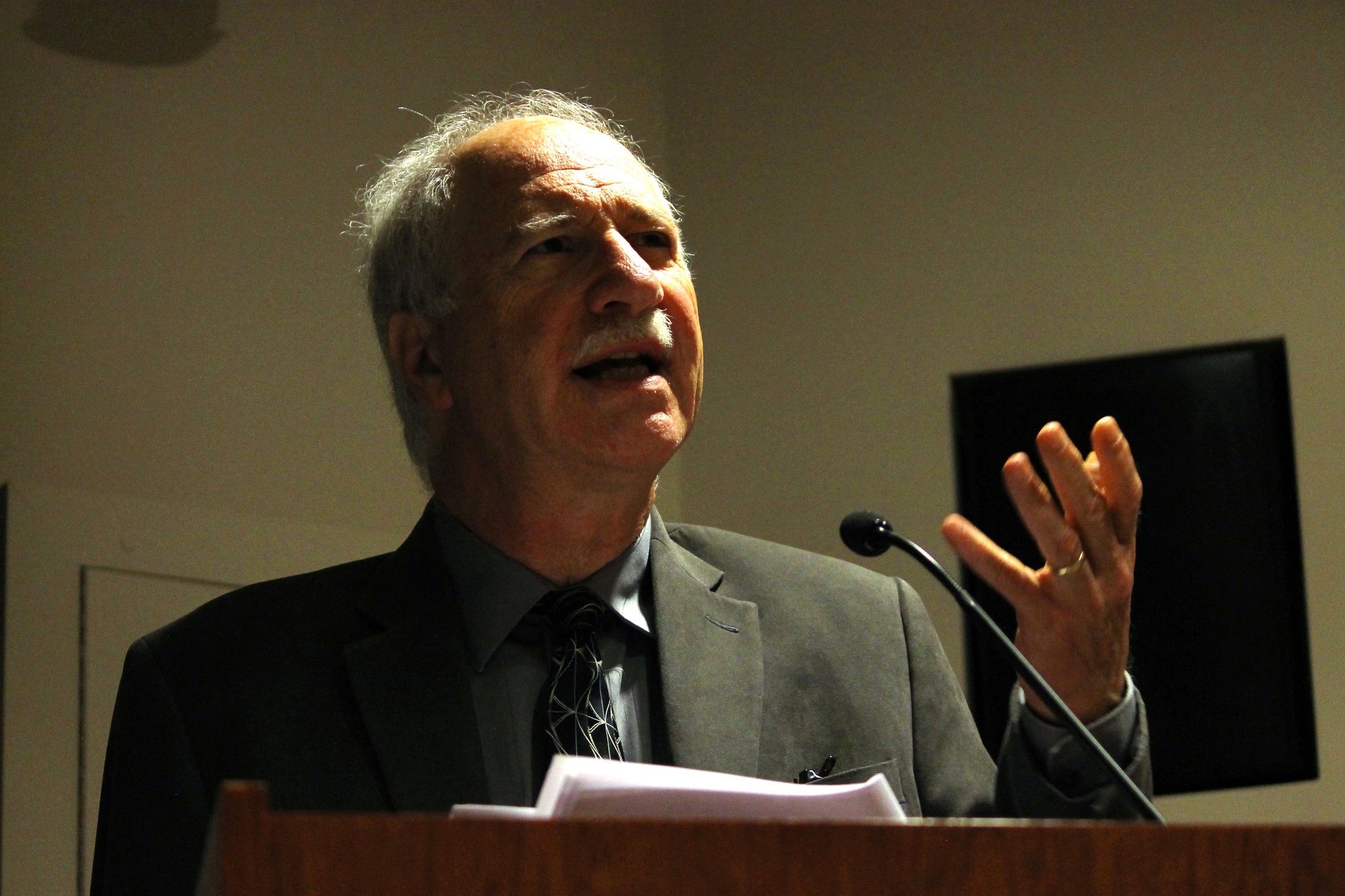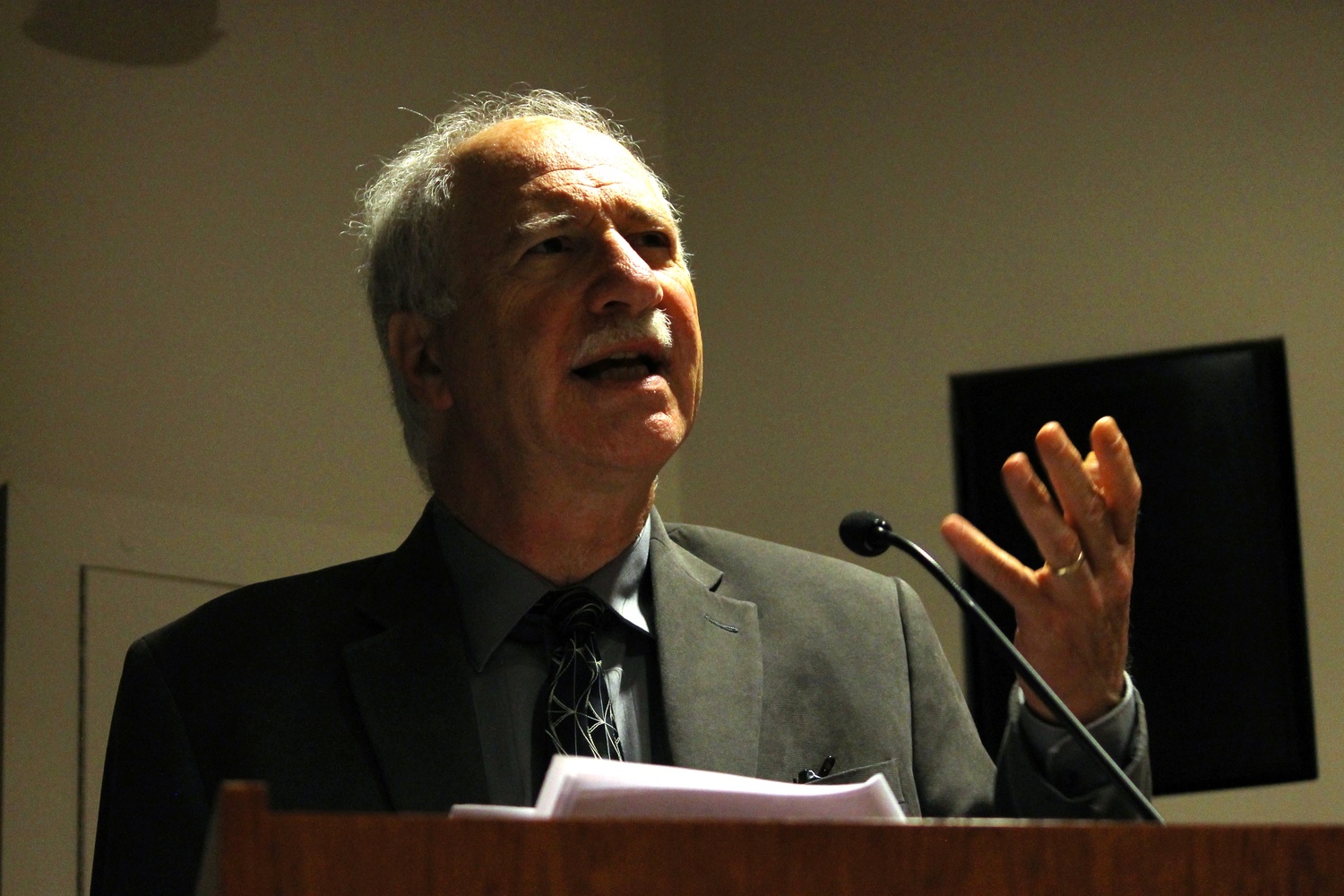
News
Garber Privately Tells Faculty That Harvard Must Rethink Messaging After GOP Victory

News
Cambridge Assistant City Manager to Lead Harvard’s Campus Planning

News
Despite Defunding Threats, Harvard President Praises Former Student Tapped by Trump to Lead NIH

News
Person Found Dead in Allston Apartment After Hours-Long Barricade

News
‘I Am Really Sorry’: Khurana Apologizes for International Student Winter Housing Denials
Historian Takes Fresh Look at Two 20th Century Jewish Intellectuals

University of California, Berkeley historian Martin E. Jay employed a wide array of “unusual” metaphors to compare Walter Benjamin and Isaiah Berlin in front of a crowded audience in the Center for European Studies on Monday.
Dozens of people crowded the seats, sat on the floor, and lined the back of the room when Jay started the lecture early, kicking off a series of talks this school year held by the Harvard Colloquium for Intellectual History.
Jay, who earned a Ph.D. from Harvard, said he focused on two major Jewish intellectuals—Walter Benjamin and Isaiah Berlin, titans of 20th century Jewish intellectual life—because of his deep respect for both thinkers and his interest in their drastically different personalities and backgrounds.
The audience was surprised by his use of metaphors to compare the two authors, ranging anywhere from hedgehog and fox, husband and lover, and the one Jay argued suited the two authors best: gambler and investor. He felt that was accurate because Benjamin, the gambler, took risks with his theories and in life was constantly in debt and nomadic, while Berlin was a shrewd investor, never really diverting from the popular beliefs of his age, and maintained success throughout his life.

“It was wonderful in the way he brought the personalities of the two authors to life—especially with his comparison of husbands and lovers; it was a very unusual way of talking about intellectual history,” said Howard Eiland, a MIT professor who attended the event and was a co-author of a Benjamin biography Jay mentioned.
Jay said this was his intention—to bring something new to the ongoing discussion of Jewish intellectuals. He wanted to not compare the two in their actual beliefs, but instead their history, styles and places in the world.
“This is an attempt to think about two figures I have written about who are very different, but nonetheless very powerful, still current figures in contemporary discourse, but they represent two very different types of intellectuals,” Jay said.
History professor Peter E. Gordon, a former student of Jay, invited him to speak after being inspired by Jay and learning under him as a graduate student at UC Berkeley.
“Marty is one of the true stars in the field,” Gordon said. “There is no one better than Martin Jay to give a very insightful portrait of these two intellectuals.”
Want to keep up with breaking news? Subscribe to our email newsletter.
